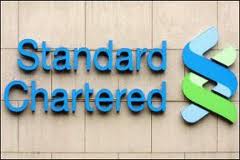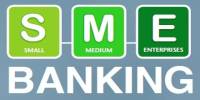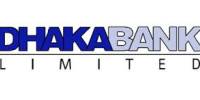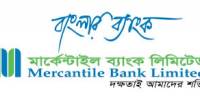Comparative Study of Cash Management Operations of Standard Chartered Bank
In the Banking industry of Bangladesh, Standard Chartered Bank is one of the leading foreign commercial banks for their effective banking service throughout the country. The scope of this report is limited to the overall descriptions of the bank, its services, its position in the industry and its competitive advantage as a foreign Commercial Bank. The output of this report may help to bring the situation of the current scenario in front of the related managers and the higher authority and help to take effective and efficient decisions to achieve the business goal. So the report will provide some real chance to explore the factors as it is defined by the organizational set-up, functions, and performances as well as comparison with same categories of banks.
Objectives of the Report
Broad/General objective
The broad/general objective of this report is to analyze the “Cash Management Operations of Standard Chartered Bank’’.
Short/Specific objectives
There are some specific objectives also:
- To know about Cash Management Operations of Standard Chartered Bank.
- To show the actual scenario of CMO department on yearly basis.
- To compare the CMO department’s yearly performance with CMO department of same category banks- HSBC, Citi Bank N.A.
- To suggest some recommendations on the basis of findings.
Methodology of the Report:
Sample Information
Samples are collected from the SCB’s CMO, Project, MIS, Ops Risk unit. Here, the samples had been picked up on a judgmental basis. For the organization part, much information had been collected from different published articles, journals, brochures and web sites. All the information incorporated in this report has been collected both from the primary sources and as well as from the secondary sources.
Primary Source of Data
Collecting data directly from the practical field is called primary source of data. The method that was used to collect the primary data is as follows:
- Observation Method:
Observation method may be defined as systematic viewing according to concise Oxford Dictionary “accurate watching, nothing of phenomena as they occur in nature with regard to cause and effect and mutual relationship”. I have observed many of the activities of CMO Department.
- Other Primary Sources are:
- Discussion with officials of SCB
- Face to face conversation with the clients.
- Discussions with customers over the telephone & responding to their query.
Secondary Sources of Data
The secondary data has been collected from the MIS of Standard Chartered Bank and Foreign Exchange Policy Department of Bangladesh Bank. To clarify different conceptual matters, internet and different articles published in the journals & magazines have been used.
Secondary Sources are:
- Brochures of SCB
- Research papers on banking industry
- Annual report of SCB, HSBC & City N.A
INSIGHT OF SCB
An Overview of Standard Chartered Bank
Standard Chartered Bank (SCB) is a multinational bank and financial services group that is incorporated in the U.K. with a unique international network. It now spans in the developed and emerging economies of the world, serving the world for 150 years now. It has it’s primarily operations in Asia, Africa, and Middle East. This bank plays an invigorating role in linking the world economic trend with emerging markets of its operating countries and provides a wide range of population with different services under the big umbrella of personal banking, corporate banking (wholesale banking), private banking, SME banking and SAADIQ Islamic banking services. 75,000 people of 115 nationalities work in the bank worldwide. This range of diversity helps to energize creativity and innovation, supporting the development of exciting new products and services for customers; worldwide.
In Bangladesh, the Chartered Bank opened its operation in Chittagong in 1947. The bank acquired ANZ Grind lays Bank for 1.34 billion dollars in the year 2000. The bank serves Bangladesh with consumer banking and wholesale banking. It has 26 branches across the nation.
The bank has the brand promise stating “Leading by Example to be The Right Partner”. It is the largest foreign bank operating in Bangladesh. In 2008, SCB was one of the few multinational financial institutes which managed to protect its operations and revenue from the recession and gathered a $ 4568 million of net profit. SCB managed to keep its record growth and 2008 net profit was $ 533 million higher than 2007’s net profit and $ 850 million higher than 2006. Total asset was $ 435 billion in 2008, 32 % higher than 2007. The bank has major operations and revenue in Asia, Africa and Middle East.
History of Standard Chartered
The name Standard Chartered comes from the two original banks from which it was founded, The Chartered Bank of India, Australia, and China, and The Standard Bank of British South Africa. The Chartered Bank was founded by James Wilson following the grant of a Royal Charter by Queen Victoria in 1853, while The Standard Bank was founded in the Cape Province of South Africa in 1862 by John Paterson. Both companies were keen to capitalize on the huge expansion of trade. They wanted to earn handsome profits from financing the movement of goods from Europe to the East and to Africa.
In those early years, both banks prospered well and quick. Chartered opened its first branches in Bombay. In South Africa, Standard, having established a considerable number of branches, was prominent in financing the development of the diamond fields of Kimberley from 1867 and later extended its network further north to the new town of Johannesburg when gold was discovered there in 1885.
Both bank acquired other small banks over time and spread their networks further. In 1969, the decision was made by Chartered and by Standard to undergo a friendly merger. They decided to counterbalance their network with expansion in Europe and the United States.
In mid 1993, Sir Patrick Gillam became Chairman. He made it clear that Standard Chartered would grow and develop its strong franchises in Asia, the Middle East and Africa using its operations in the United Kingdom and North America to provide customers with a bridge between these markets.
In August 2000, the US$ 1.34 billion acquisition of Grindlays Bank was completed. This made Standard Chartered the leading international bank in India and the other countries of South Asia strengthened the Group’s competitive position in the Middle East and brought to the Group a respected private banking business. The group operates through more than 600 offices in over 48 countries and has over 25,000 people managing assets of over 47 billion pounds.
Global Network of Standard Chartered Bank
Standard Chartered has over 600 offices in 56 countries with a strategic focus on the emerging markets of Asia, Africa, the Middle East and Latin America.
The global strategies of Standard Chartered Bank are:
- To build and grow strong businesses in East and South East Asia – the Asia Pacific Region.
- To enhance historical position in the MESA region.
- To concentrate operations in the OECD in those activities that support Standard Chartered Bank’s remarkable franchise in newly industrialized and emerging markets.
Business Activities of the Global Standard Chartered Bank
The bank provides a full range of products and services all around the world, some of which are mentioned here:
Global Consumer Finance:
There are seventy-six branches and finance centers under this division in about the countries with a workforce of 1616 employees. Some of the services provided by these divisions are unsecured personal loans, credit cards and retail store cards, vehicle related leases, etc.
Personal Banking:
There are about 410 branches with a workforce of 12,000 employees working under this division in 28 countries. Some of the services provided by this division are various kinds of insurance and loans, account maintenance, traveler’s cheque and money exchange etc.
Global Corporate and Institutional Banking:
There are 350 branches under this division. This division provides services in 42 countries. The services provided by this division are International Trade Management, Institutional banking, Treasury, Custody and Cash Management.
Global Custodial Service:
There are 17 offices under this division and about 900 staff members, operating in 14 countries and headquartered in Singapore. Standard Chartered Equator fulfils standard Chartered Bank’s strategic commitment to provide custody and clearing services in the Greater Asia. Standard Chartered Bank has one of Asia’s leading custodians over 40 years. Equator’s focus is on the followings:
- Commitment to equity
- Dedication to the customer needs
- Sustained investment in people and systems.
International Trade Management:
Principles services of this division are to the people are Import Letter of Credits (L/C), Import Bills for Collection, Back to Back Letter of Credit, Direct Export Bills for Collection, Bulk Letter of Credit Collection, Bonds and Guarantees.
Global Cash Management:
The division is operational in all countries where the group has Corporate & Institutional Banking division. Standard Chartered Bank recognizes the importance of Cash Management to corporate and institutional customers and offers a comprehensive range of services and liquidity management. Services provided worldwide by this division with stress on Asian delivery.
Global Institutional banking:
Throughout Standard Chartered Bank’s network of more than 600 offices in over 40 countries, it is very well positioned to provide a wide range of services to institutional clients: commercial, merchant & central banks; brokers and dealers; insurance companies; fund managers and others. Offices of emerging markets of Asia, Sub-Saharan, the Middle East and Latin America are complemented by the branches in the developed countries such as USA, UK and Japan and bank’s membership of the clearing systems in those countries. The Institutional banking group has a network of offices in 25 countries throughout Asia, North America, Europe, Africa and The Middle East.
Standard Chartered Bank in Bangladesh
The Chartered Bank started operating in Bangladesh in 1948, opening a branch in Chittagong. The branch was opened mainly to facilitate the post-war reestablishment and expansion of South and Southeast Asia. The Chartered Bank opened another branch in Dhaka in 1966, where it was headquartered until July 2007. Letter the office was transferred to the present location which is located at GULSHAN AVENUE in august 2007. After the merger of the Chartered Bank with the Standard Bank in 1969, the Standard Chartered Bank took up a program of expansion. It increasingly invested in people; technology and premises as its business grew in relation to the country’s economy. In 1993, there was an organizational re-structuring, which led to a substantial expansion of the Bank’s business.
Bangladesh is under the MESA region, with the controlling office in Dubai. Its correspondent relationship with IBBL (Islamic Bank Bangladesh Limited), which is one of the largest banks in Bangladesh, gives its customers access to all major centers in the country. Standard Chartered Bank’s worldwide network facilitates convenient connections with foreign trade and remittance business. Standard Chartered Bank’s elegant branch banking license in Bangladesh allows it to offer a full range of banking services to their customers. The Bank presently has 25 branches in 6 cities serving a huge number of customers. The network of SCB Bank in Bangladesh includes:
- 16 branches in Dhaka City
- 5 branches in Chittagong, 1 branch in Khulna, Sylhet, Bogra and Narayangonj
Corporate Banking Group
Standard Chartered Bank offers its local customers a wide variety of financial services. All the accounts of corporate clients, which mainly comprise the top local and multinational companies operating in Bangladesh, are assigned a Relationship Manager (RM) who maintains regular and close contact to cater to their needs. The objective of this department is to maintain a thorough knowledge of the client’s business and to develop positive relationships with them. This is maintained through interactions to offer timely advice in an increasingly competitive business environment. The expertise of the Financial Institution (former Institutional Banking) and Treasury groups is also available whenever required. The unique Off-shore Banking Unit (OBU) in Savar offers a full range of facilities to overseas investors, and recently that Savar Branch have expanded many of its activities. The Corporate Banking Group in Bangladesh has displayed a spirit of community involvement by working with NGOs to underwrite soft loans. Standard Chartered Bank offers its corporate customers:
- The wide varieties of lending needs are offered with skilled and responsive attention.
- Project finance and investment consultancy.
- Syndicated loans.
- Bonds and Guarantees.
- Local and International Treasury products.
The trade finance of Standard Chartered Bank takes care of the commercial activity related issues, particularly those related to import and export finance services. Some of the services are: Trade finance facilities including counseling, confirming export L/Cs and issuing of import L/Cs, backed by its international branch and correspondent loan network Bond and Guarantees Project finance opportunities for import substitution and export oriented project
Treasury Division
The foreign exchange and money market operation of the Standard Chartered Bank in the world is extensive. Exotic currencies happen to be one of its special areas of strength. A 24 hourservice is provided to customers in Bangladesh through the Bank’s network of dealing centers placed in the principal of the world. The Bank’s treasury specializes in offering solutions to those who wish to manage interest rate and currency exposures that result from trade, investment and financing activities of other dynamic economies of the region. Treasury operations are developed in line with changing market conditions to provide the best services to its customers.
According to BAFEDA (Bangladesh Foreign Exchange Dealers Association), Standard Chartered Bank presently controls 42% of the local foreign exchange market’s traded volume.
Financial Institution Department (Former Institutional Business Group)
Financial Institution Department (former Institutional Banking) is a specialized banking unit of Standard Chartered, providing products and services to the specific needs of other banks and financial institutions.
It assists the local banks by taking care of their cross-border business through the worldwide Standard Chartered Bank networking over 40 countries. It offers various services like L/C Confirmation, Negotiation, Inter and intra Bank Guarantee, Local Bill Discounting, L/C Advising, L/C Transfer, L/C amendment advising, Reimbursement Undertaking and Authorities, Fund Transfers, Export proceeds, BDT Draft Drawing, International Payments (T T’s), Account Services (Vostro Account Management)
Consumer Banking Division
Superior retail banking services comprising a wide range of deposit and loan products are offered by the Standard Chartered Bank to its individual customers. The Consumer Banking division constantly faces challenges and meets them by developing new products and services to fulfill the specific requirements of local and foreign customers. Bank offers a 24-hour service in Bangladesh through its Money link ATM network and Phone-link Phone Banking services. The below mentioned type of accounts are served by the Consumer Banking Division.
- Personal Current Account
- Personal Savings Account
- Personal Access Account
- Consumer Fixed Deposit Account
- Personal Call Deposit Account
- Non-resident Foreign Currency Deposit Account
- Resident Foreign Currency Deposit Account
- Convertible Taka Account
- Foreign Currency Accounts for Foreign Nationals
- Foreign Currency Accounts for Bangladeshi Nationals
- Escrow Account
- Private Non-Resident Taka Account
Card Division
Card is the latest area that has been identified for rapid development. The bank is the one of the acquirers of three major cards in Bangladesh. Two of the credit cards are VISA and MASTER CARD and the one is the charge card known as Japan Credit Bureau (JCB). Standard Chartered Bank is the subsidiary or secondary agent of the credit cards and a primary agent of JCB.
SCB started its cards operation in 1989 as a part of retail banking. Initially, SCB’s card market was very small, with only 30 merchants. But seeing the economies and the consumers’ attitude towards the credit card has given the opportunity to expand their market base by acquiring high quality merchants in the chosen segment. The bank is the first to introduce the TAKA CREDIT CARD. The card is issued basically to a person’s name and the specific person can use the card in anywhere in Bangladesh.
Custodial and Clearing Service
Headquartered in Singapore, Standard Chartered Equitor fulfils the group’s strategic commitment to the provision of custodial service in Asia. Equator’s customers are primarily foreign global custodians and broker/dealers requiring cross border information as well as sub-custodian services. Standard Chartered Bank, Bangladesh is responsible for the planning in Bangladesh, but the overall management of the custody business is based on Equator’s international business strategy.
Supporting Departments
Information and Technology Department
This department is instrumental in the running of all the computerized operations of the bank. They help in the implementation and generation of computerized reports. Another major duty of the department is to maintain communication with the rest of the world.
Operation
Operation is part of the support division, which helps to run the businesses of the bank in a smooth and controlled manner. Since it helps mainly in processing the works of the business units, any mistakes made can be easily detected and on time.
Following are the main functions of the operations department:
- Central operations deals with the closing and opening of accounts and other payment and account related processing of the Personal Banking division
- Treasury operations help to deal with the processing works of the treasury division. Loan Administration Unit (LAU) deals with the processing of the Corporate Banking division.
- Operations also have a department that deals with internal projects that arises from the need to deal with certain problems or to make certain changes.
Legal and Compliance
In the UK, Standard Chartered Bank is regulated by the Bank of England, while in Bangladesh local banking laws regulate it and rules set by the Ministry of Finance and Bangladesh Bank. It also encourages its staff to conform to an internal culture of ethical behavior and sensitivities to the culture and religion of the country.
Some of the key areas that the Legal & Compliance department has to take care of are: any kind of legal issues, to advise the CEO regarding all matters and the management on legal and regulatory issues, correspond regulatory compliance issues to MESA Regional Head of Compliance, and supervise internal control (e.g. internal audit).
External Affairs
This department deals with advertising, public relations, promotions, partial marketing which involves disseminating new products and services to customers and above all ensuring service quality.
CASH MANAGEMENT OPERATIONS
Cash Management Operations
Introduction
Cash Management services include local and cross border payments, collections, information management and investment services for both corporate, Institutions and individual clients. As part of Standard Chartered’s global transaction solutions to Corporate, Institutions and individual, they provide Cash Management, Securities Services and Trade Services through their strong market networks in Asia, Africa, the Middle East and Latin America. SCB also provide a connection to these markets for clients from other region of the world.
They are committed to providing with
- Integrated, superior cross-border and local services
- Efficient transaction processing
- Innovative products
- World-class clearing services
Cash Management Operations Department
Inward Telegraphic Transfer (ITT)
ITT is a unit under Cash Management Operations department. When the bank receives remittance on behalf of the customer, it is inward remittance / Inward telegraphic transfer. The bank receives the remittance instruction through SWIFT message, and then the following steps are taken by ITT unit:
- Receive ITT instruction via SWIFT in MT103, 202, 101 formats. Different message type indicates the remitting form
- Sort messages
- Generate pre-advice and inform customer about remittance and receive supporting documents from customer for the payments
- Verify details / checking for confirmations
- Payment instruction / encashment to customer’s account
- If necessary documents are not been provided or required documents are not updated then items move to UCD (Unclaimed Cover for Drawings) file, and hold the remittance for regulatory requirement.
- It works through four transaction systems: SWIFT> SCSTAR>DOTOpal>eBBS
Outward Telegraphic Transfer (OTT)
OTT unit processes outward remittances where fund is transferred from accounts held with SCB Bangladesh. Though the telegraphic system has been decommissioned for such transfers, the term ‘telegraphic transfer’ broadly is being used throughout the banking industry. OTT unit works in following steps:
- Receive OTT instruction
- Verify details
- Reject / input OTT transaction
- Check and approve transaction
- Generate and send payment message
- Prepare customer advice.
Local Collection Unit (LCU)
Local Collection Unit collects local cheque of other bank. When local cheques are received by local cheque collection unit then the following steps are followed:
- Receive other bank local cheque
- Verify details
- Reject / input cheque transaction
- Check and approve transaction
- Generate and send payment message
Foreign Collection Unit (FCU)
Foreign Collection Unit also works under cash management operations department. FCU collects foreign cheques, inward cheques and process in the following steps:
- Receive other bank foreign cheque
- Collects inward cheque
- Verify details
- Reject / input cheque transaction
- Check and approve transaction
- Generate and send payment message
Bills Pay
Bills pay, the most convenient way to settle monthly utility bills. Bills pay unit not only provide convenience but also allow flexibility to pay customer bills as and when chosen. Once who sign up for the services, customer will no longer have to go out of his way to pay bills for electricity, mobile phones, internet, etc., every month. Bills pay provides one-stop payment solution where the department will debit customers’ account to pay bills.
Premium Service-Banking (PSB)
Premium Service-Banking offers a choice of service improvements which can be tailored to individual business needs. These service enhancements collectively allow managing business finances and cashing resources more effectively and conveniently. PSB unit works in following steps:
- Receive daily fax of routine transaction of ITT, OTT, PODD units
- Entry all the transaction into the system with CMO suite software
- Verify and forward each transaction to the related unit
- When other units clear the transaction / credit amount to the customer the status updated by PSB unit in CMO suite
- PSB unit also allows customer to full range of transaction banking enquiry relating to balances, account statements, cheque payment status and other transactions.
Ops, Risk & MIS
This unit at CMO department maintains and upgrades Database and provides MIS updates on different issues to Management, Branches & different teams on a routine basis. The unit generates and updates different Management Information reports regarding ITT, OTT, STS/PODD customer’s information and clarification etc. This unit also verifies operational activities and risk on overall CMO department’s activities. Thus this unit plays an important role in maintaining efficiency of SCB Bangladesh.
Straight through Services & Pay-Order/Demand Draft
“Straight through Services” / Pay Order Demand-Draft system to introduced speedy technology for issuing huge volume of pay-order and demand draft of customer instructions. With the system a huge volume of customer instructions can be approved with short time with accuracy.
- Receive pay order/demand draft request
- Verify details
- Accept/reject transaction
- Input transaction
- Print copy then check and sign
- Release copy to customer
- File documents.
Cash Management Services
The Cash Management service provides total solutions to improve cash flows. Standard Chartered is highly recognized as a leading cash management supplier across the emerging markets. Cash Management Services cover local and cross border payments, collections, information management, account services and liquidity management for corporate, institutional and individual customers. With Standard Chartered’s Cash Management Services, customers always know where their money is.
They can take advantage of SCB’s outstanding range of payment, collection, liquidity and investment services and receive reports detailing when and where cash has been moving.
Clearing Services
Standard Chartered possesses 140 years of experience in Trade Finance. SCB’s broad international customer base, professional insight and knowledge of the risks and rewards of international trade earned the bank a unique position in the industry. The bank offers world-class support across the worldwide buyer chain to minimize overall cost, maximize buyer base, and shorten administrative processes.
To enable customers to capture global opportunities, it has a presence in over 50 countries, in addition to the extensive network of overseas banking partners and correspondents.
Standard Chartered has a wide array of financing tools to ease customer’s cash flow burden and help them grow their business.
Receivables Services
It gives financial security to explore new markets overseas or grow your business locally, reducing risk and cost.
Import Services
Instead of paying for imports immediately, SCB is able to offer import financing, to finance a drawing under an Import Letter of Credit or Import Bill for Collection, giving customer’s time for the goods to be cleared and resold.
Export Services
Standard Chartered offers the opportunity to obtain pre-shipment and post-shipment financing.
Cash Management for Corporations
Collection Services
Standard Chartered understands that operating and sustaining a profitable business these days is extremely tough. In an environment of constant changes and uncertainties, most businesses face challenges of costs and efficiency. Key concerns include
- Receivables Management
Ensuring receivables are collected in an efficient and timely manner to optimize utilization of funds.
- Risk Management
Ensuring effective management of debtors to eliminate risk of returns and losses caused by defaulters and delayed payments.
- Inventory Management
Ensures efficient and quick turnaround of inventory to maximize returns.
- Cost Management
Reduces interest costs through optimal utilization of funds.
- Solution
This Collections Solution, delivered through a standardized international platform, has the flexibility to cater to customers’ local needs, thus enabling to meet objectives of reducing costs and increasing efficiency and profitability through better receivables and risk management. The key components of our solution include the following:
- Extensive Clearing Network
- Guaranteed Credit
- Comprehensive MIS
- System Integration
- Outsourcing of Collection
Liquidity Management
With global experience and on-the-ground market knowledge, Standard Chartered will help to define an overall cash management strategy which incorporates a liquidity management solution that best meets customer’s needs.
Solutions for efficient management of customers’ funds:
- A corporate treasurers’ main challenge often revolves round ensuring that the company’s cash resources are utilized to its maximum advantage.
- Maximize interest income on surplus balances; minimize interest expense on deficit balances for domestic, regional and global accounts
- Minimize FX conversion for cross-currency cash concentration
- Customize liquidity management solutions for different entities in different countries
- Centralize information management of consolidated account balances
Cash Management for Financial Institution
- Clearing Services
With increasing business globalization, customer banking network may not have sufficient reach. They may not want to put in the extra infrastructure or resources to expand their network but still want to ensure their clients’ transactions are serviced efficiently. Clearing is one of the important services in which customer bank would need support to facilitate clients’ smooth international trade and cross-border transactions.
Solution:
- Standard Chartered’s international network and multi-currency capabilities are well placed to provide with a seamless service for all clearing requirements worldwide. SCB’s network extends across Africa, the Middle East, South Asia, Latin America, the USA and the UK.
- Over 150 years of on-the-ground experience to tailor a clearing solution that meets by Standard Chartered, is a correspondent banking partner to make this potentially complicated process much easier.
- Standard Chartered offers “Best in Class” technology and processes in clearing services wherever customer are, in whichever country customer do business and in whatever currency.
- With Standard Chartered’s Cash Management services, exact financial position can be determined. So it’s easy to manage company’s complete financial position directly from computer workstation.
- With outstanding range of Payments, Collections, Liquidity and Investment Services and receive comprehensive reports can be determined. With Standard Chartered, everything it takes to manage clients’ cash flow more accurately.
Cash Management Facilities
- Manage the availability of funds efficiently
- Monitor and control the movement of funds
- Settle payments to suppliers in a timely and cost-effective manner.
- Capture every investment opportunity to increase income
E-Commerce and E-Banking
E-Commerce provides with a full range of reporting capabilities, and a comprehensive range of transaction initiation options. Whether it is cash or trade related, the user-friendly e-Banking customer workstation will provide with a secure, reliable and effective link between client and his accounts anywhere across the Standard Chartered network with more than 600 offices in more than 70 countries.
E-Banking also incorporates an “events scheduler” which automatically executes tasks. Moreover, eBanking offers Data Export/Import capability to/from other widely used Windows-based software (e.g. MS Excel, MS Access etc).
Findings
From the analysis part I have discovered the following findings:
- Inward remittance from personal purpose is very low compare to the other purposes of remittance collection. Which indicates that remittances come in personal account/salary account are only 2% according to 2010.
- Disbursements of inward remittances are not satisfactory. Each year handsome amount of remittances are not been settled and goes to UCD files for regulatory confirmation.
- Outward remittance distributions by purpose are close in percentage to one another. But outward remittance distribution of other purposes is less then business, travelling, and student.
- The comparative analysis shows Standard Chartered Bank’s inward remittance collection through year 2008-2010 are less then Hong Kong & Shanghai banking Corporation, which is not a good indicator for the bank.
- Distribution of outward remittances of SCB was less then HSBC in 2008, it increased in 2009 but in 2010 the difference came closer again.
- In terms of local cheque collection SCB & HSBC both are close where Citi N.A is not close enough to the amount of local cheque collection. (In figure 08)
- Collection of foreign cheque of SCB was less in 2008 compare to HSBC but in 2009 & 2010 it is increased but the gap with HSBC was not enough to being the leading bank. Here Citi N.A is lack behind as like as other analysis. (In figure 09)
Recommendation
Based on the above findings from my experience in the organization I recommend that SCB should consider the followings:
- SCB has some regulatory restrictions which discourage the individual customers to send remittance from abroad. That is why remittance coming in personal purpose is 2% out of the total.
So, SCB should take initiatives to increase it by mitigating the restriction for personal account and encourage the customer by promotional activities.
- CMO should concentrate more on UCD items time to time. Because every year many customersCorporate, NGO, individual etc. failed to receive their remittances.
- Outward remittance send by the purpose of business, travelling, student fees and expenses are satisfactory but they should consider remittances send for other purposes as well.
- In compare to collection of remittance SCB was lack behind HSBC bank. So, they have to increase their position from this to be the leading bank because HSBC is the number one competitor of them.
- In the distribution of outward remittance CMO department of SCB also need to concentrate to have the edge on competitors.
- CMO department also have to try to increase the collection of both local and foreign cheques to bit its competitors.
Conclusion
Proper financial system of country can contribute towards the development of the country’s economy. In our country banks are leading in the financial system. Again private commercial banks, which are much better than state owned bank, are playing significant as well as imperative role in the development of our country.
Certainly with a banking heritage spanning more than 150 years, Standard Chartered has an extensive global reach and a strong position in emerging markets, supplemented by strategic alliances and acquisitions. SCB is not only the leading foreign bank but also one of the few banks that have revolutionized the banking service industry through adoption of modern technology and process with a view to enhancing customer satisfaction. Despite stiff competition among banks operating in Bangladesh both foreign and local, Standard Chartered Bank has achieved satisfactory progress in areas of its operations and earned an impressive customer’s loyalty over the previous years. Standard Chartered group committed to the emerging markets, where they have a strong and established presence and where they see their future growth. Standard Chartered Bank generates around 90% of its profit from the MESA region where it is committed to the local community by their brand image “Here for good”.
Though Standard Chartered Bank has been operating around the globe with a strong brand image and customer satisfaction but it’s still need to improve some of its lacking to enrich and maintain a better reputation to become the world’s best international bank.
















